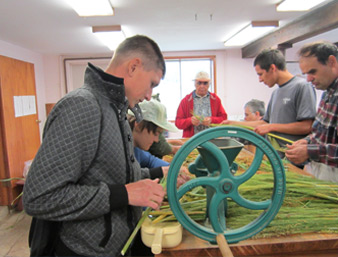
Culture and Self-Determination for Students with Disabilities
Self-determination is a key component of transition as it empowers students with disabilities to make their own choices and determine the course of their lives. Although self-determination appears to be a universal concept, its characteristics may vary between cultures. The purpose of this review was to document how self-determination is conceptualized in the United States, as well as the effect culture might have on special educators’ abilities to aid student self-determination. Recurring themes evident in the literature are: self-determination is one of eight domains of the Quality of Life construct; differences in culturally and linguistically diverse populations may affect a student with disabilities’ ability to be self-determined; and cultural differences should be accounted for when designing transition plans for diverse students. As a result, special educators must become culturally aware and develop the necessary skills to support and facilitate the skills, abilities, and knowledge associated with self-determination.





